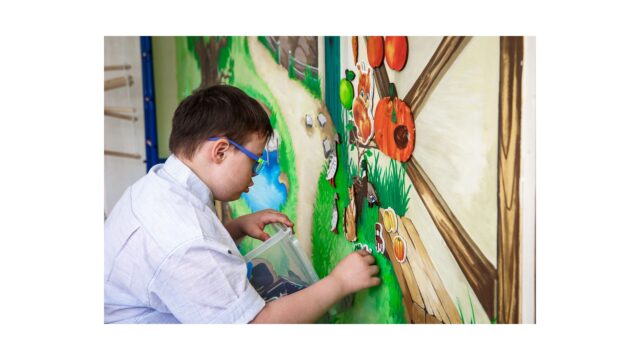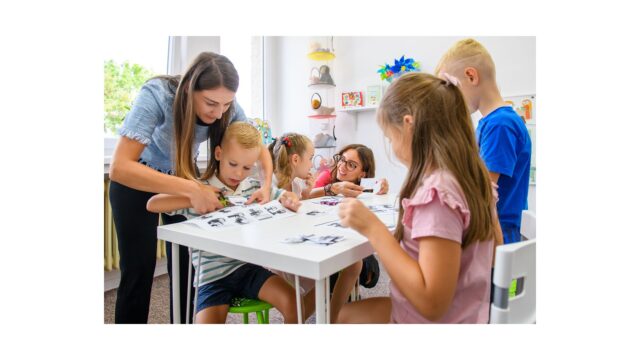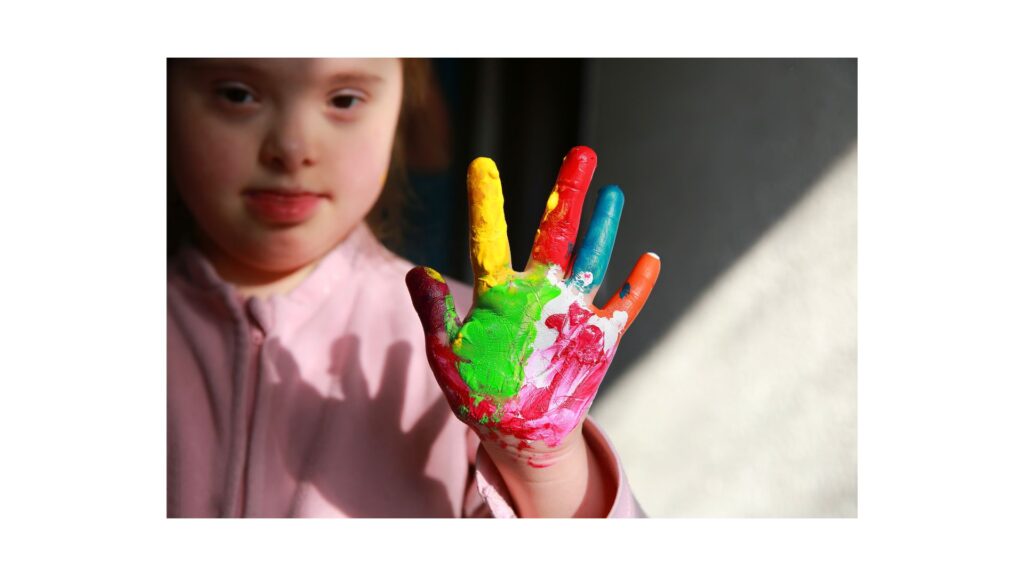In a world where traditional methods of therapy often fall short, the transformative power of art therapy shines brightly, especially in the lives of special needs children. Amidst the challenges they face daily, from navigating sensory sensitivities to communication barriers, art therapy emerges as a beacon of hope, offering a unique avenue for expression, healing, and growth.
In this blog, we delve into the profound impact of art therapy on special needs children, exploring how it fosters their development, enhances their well-being, and empowers them to navigate the world with confidence. From unlocking hidden talents to fostering self-esteem and resilience, the journey of art therapy unfolds as a testament to the profound connection between creativity and healing. Join us as we uncover the ways in which art therapy transcends boundaries, paving the way for special needs children to not only cope but to thrive.
Fostering Emotional Regulation: How Art Therapy Empowers Special Needs Children
Emotions can be complex terrain for anyone to navigate, but for special needs children, who may struggle with sensory overload, communication barriers, or cognitive differences, managing emotions can be particularly challenging. Enter art therapy – a dynamic and effective approach that offers these children a pathway to emotional regulation, self-awareness, and resilience. In this exploration, we delve into the profound ways in which art therapy fosters emotional regulation in special needs children, providing them with invaluable tools to navigate the complexities of their inner worlds.

Understanding Emotional Regulation
Before delving into the role of art therapy, it’s crucial to understand what emotional regulation entails. Emotional regulation refers to the ability to manage and modulate one’s emotional responses in a manner that is adaptive and socially appropriate. For special needs children, who may experience heightened sensitivity or difficulty in expressing their feelings verbally, mastering emotional regulation is essential for their overall well-being and social functioning.
Art Therapy as a Pathway to Emotional Expression
One of the key strengths of art therapy lies in its ability to bypass verbal communication barriers and tap into the realm of nonverbal expression. Through various artistic mediums such as painting, drawing, sculpting, and collage-making, special needs children can externalize their emotions and inner experiences in a tangible and accessible way. Whether it’s depicting feelings of joy, sadness, anger, or anxiety, art becomes a safe container for them to explore and process their emotions without the pressure of finding the right words.
Creating a Safe and Supportive Environment
Central to the success of art therapy in fostering emotional regulation is the creation of a safe and supportive therapeutic environment. Trained art therapists provide a nurturing space where children feel accepted, validated, and free to express themselves without judgment. This sense of safety allows children to delve into their emotions with a sense of curiosity and openness, paving the way for deeper self-exploration and healing.
Developing Coping Strategies and Self-Regulation Techniques
As children engage in art-making activities, they not only express their emotions but also learn valuable coping strategies and self-regulation techniques. Through the guidance of art therapists, children are encouraged to experiment with different art materials, techniques, and processes, empowering them to discover what works best for them in managing their emotions. Whether it’s using color to represent different moods, engaging in mindful art practices, or creating a visual journal to track emotional fluctuations, art therapy equips children with a diverse toolkit for emotional self-care.
Building Self-Awareness and Empathy
In addition to regulating their own emotions, art therapy also fosters self-awareness and empathy in special needs children. As they externalize and reflect on their inner experiences through art, children gain insight into their own emotional patterns, triggers, and coping mechanisms. Moreover, engaging in group art therapy sessions allows children to witness and empathize with the emotions of their peers, fostering a deeper understanding of shared human experiences and emotions.
Supporting Social Skills Development: Art Therapy’s Role in Empowering Special Needs Children
Social interaction is a cornerstone of human connection, yet for special needs children who may face challenges such as communication difficulties, sensory sensitivities, or social anxiety, navigating social situations can be daunting. Enter art therapy – a dynamic and inclusive approach that not only fosters creative expression but also supports the development of essential social skills. In this exploration, we delve into the profound ways in which art therapy serves as a catalyst for social growth and empowerment in special needs children, providing them with invaluable tools to thrive in interpersonal relationships and community settings.
- Understanding Social Skills Development: Social skills encompass a broad range of abilities that enable individuals to interact effectively and harmoniously with others. These skills include communication, cooperation, empathy, perspective-taking, problem-solving, and self-regulation – all of which are essential for building meaningful relationships and navigating social environments. For special needs children, who may experience difficulties in one or more areas of social functioning, the development of these skills is critical for their overall well-being and integration into society.

- Art Therapy as a Bridge to Social Connection: Art therapy serves as a bridge to social connection by providing special needs children with a safe and supportive space to engage in creative expression alongside their peers. In group art therapy sessions, children have the opportunity to collaborate, communicate, and connect with others through shared artistic experiences. Whether it’s working together on a collaborative art project, giving and receiving feedback on artwork, or simply enjoying each other’s company in a nonjudgmental environment, art therapy fosters a sense of belonging and camaraderie among participants.
- Facilitating Communication and Expression: For special needs children who may struggle with verbal communication, art therapy offers an alternative mode of expression that transcends language barriers. Through various art mediums such as drawing, painting, sculpting, and storytelling, children can communicate their thoughts, feelings, and experiences in a tangible and accessible way. Art becomes a universal language through which children can express themselves authentically, fostering mutual understanding and empathy among participants.
- Promoting Empathy and Perspective-Taking: Engaging in art therapy encourages special needs children to explore different perspectives and empathize with the experiences of others. As they create artwork that reflects their own emotions, thoughts, and experiences, children also have the opportunity to interpret and respond to the artwork of their peers. Through this process of artistic exchange and reflection, children develop empathy, compassion, and a deeper appreciation for diversity and individuality.
- Encouraging Collaboration and Cooperation: Art therapy encourages special needs children to work together towards common goals, fostering collaboration, cooperation, and teamwork. Whether it’s collaborating on a group mural, brainstorming ideas for a collective project, or sharing art supplies and resources, children learn valuable social skills such as compromise, negotiation, and conflict resolution in the context of artistic collaboration. These collaborative experiences not only strengthen interpersonal relationships but also promote a sense of unity and solidarity among participants.
Conclusion
Awc Behavioral Health LLC, located in Boca Raton, Florida, USA, we are dedicated to witnessing the transformative power of art therapy in enhancing the lives of special needs children. Through our personalized approach and unwavering commitment, we have observed remarkable progress and growth in our young clients, fostering a sense of self-expression, confidence, and emotional well-being. As advocates for holistic care, we firmly believe in the profound impact of art therapy as a means to empower and support these children in reaching their full potential, ultimately enabling them to thrive in both their personal and academic pursuits.

